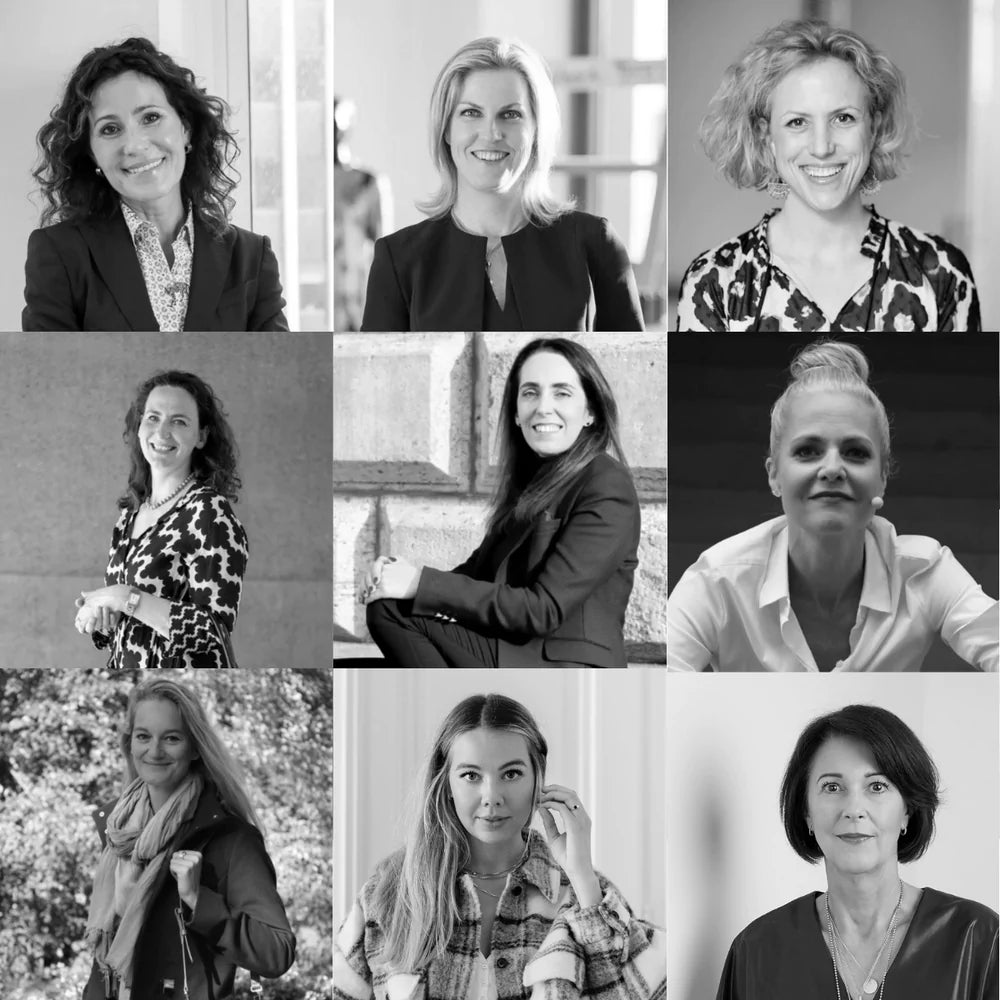Strong Voices Interview #28: Fränzi Kühne
Our StrongVoice in June is Fränzi Kühne. If someone had told me just a few weeks ago that we would interview her as StrongVoice for AMELI, I probably would have shaken my head laughing and not thought it possible - "never, that's a number too big". Reminder: Sometimes you just have to jump over your own shadow and ask. All the more I am happy to share a very inspiring interview today. Thank you for your time, Fränzi.
ABOUT FRÄNZI:
Fränzi Kühne is Chief Digital Officer at edding AG, and also an entrepreneur, bestselling author and member of the supervisory board. She is a successful founder herself, is committed to more diversity in leadership positions and advises companies on digitalisation issues. In our interview, she talks to us about her impressive career, shares personal experiences from her various positions and gives an insight into the mission she is pursuing with her work.

OUR QUESTIONS:
You are a CDO, entrepreneur, author and supervisory board member at the same time. How did you get this very impressive career? What did it all start with?
When I hear or read a list like this, it may sound like the perfectly planned career at first glance, but that's not how it actually was for me. I believe that a life is a result of rapidly changing circumstances, such as new technologies, various cultural influences, politics, one's own needs and emerging opportunities. Some changes are more radical, others more subtle and nothing can really be predicted and I believe that career is not a matter of chance but of seizing opportunities. I look closely at the opportunities on my path, try to evaluate and classify them for myself and make something out of them. There wasn't a real plan behind it, but getting into it without knowing what it actually was and washing into a new role with a healthy belief in myself and taking advantage of opportunities. My book was also more of an incidental thing and again a topic where I followed my passion. To others, I would advise to have your goals but always keep your eyes open for new possibilities and opportunities. In doing so, I am always motivated by the combination of people around me who face change with a positive mindset and a topic that catched me.
In 2008 you co-founded TLGG. How do you remember your founding days today, what were your biggest challenges, what were your strongest motivating factors?
I think the key to founding is passion for the topic and not doing it for the status of "becoming a founder". You have to be burning for a topic and have passion - especially with founding and entrepreneurship, can be incredibly exhausting. You have to be diligent, work a lot, and then it helps tremendously if you can let your passion for the topic drive you along the way. For me, it was helpful to have founding partners on board who complemented me in my skills and characteristics and who shared the same goal. Not getting sidetracked is also very important; having the vision of what you want to achieve and not falling down at the first gust of wind. We've also done well by getting mentors on our side who we've involved economically, because they've opened up networks and customer access and brought new perspectives.
In 2021, your book was published, which became a SPIEGEL bestseller. What motivated you to write this book? What key message would you like to convey to your readers?
I came into a new role through the supervisory board role at Freenet, which puts me in the public eye a lot. At the beginning, I was really looking forward to having the opportunity to draw attention to topics such as digitization, entrepreneurship and diversity. But journalists have always asked me questions like whether I'm taken seriously with my hairstyle, who's watching my kids right now, and why I want to be a role model for younger women. That gave me the idea to do the experiment of asking these typical female questions to men. That was very interesting because I was able to gain interesting insights, such as that men are often not necessarily aware of their role model role. My learning from this experiment was that the questions themselves are not the problem, but the unequal distribution behind them. The role models always reinforce which clichés are present and that is frustrating to spread that further and to reproduce these role models. You have to clean up the clichés, and you can start changing things yourself, such as no longer going to undiverse events or standing up for the visibility of women, even as a man. I wanted my book to draw attention to the current gender debate not with a raised finger, but with lightness.
You are committed to women in leadership positions. In your eyes, what makes a good leader and what were some valuable learnings in terms of your leadership skills?
I noticed that we never had diversity as a focus at TLGG, but it happened naturally. I think it happens naturally when people are socialized to look at performance rather than gender. We live in a society where we need a quota to serve as a crutch to get women into these positions and into areas that are classically male (like our German leadership landscape) and unfortunately we still need these tools to be able to change that culture. My biggest learnings as a leader are to take a step back and accept that you are no longer the smartest person in the room. You have to build teams that are diverse and where factors like hierarchy, gender, age, and experience background no longer matter. That's very difficult on a day-to-day basis, because you always need people who are able to understand themselves, but who are also able to understand other perspectives and look behind the scenes. That means they have to be very reflective people who don't just want to hear themselves talk, but listen and understand what characters are sitting in front of you. Only in this way can they bring them together and work together on solutions, which is essential for a good leader.
Is there a particular person or message you want to pass on, especially to young women who want to make a difference?
Making a difference and effectiveness are so important. Each individual can start with themselves and this being a role model, which I am in certain parts, I also give to other issues: be clear in their role model function, seek visibility, as an innovative leader, as a woman who stands for certain issues and boldly go forward there. Be a role model, because many young women can take their cue from that and it shows them that things can be done differently than they may have been modeled by others. When you get into a leadership position, you should dare to consciously do things differently. Dare to take on positions of responsibility: The shoes may feel two sizes too big, but still say YES when someone offers you responsibility. This daring to tackle bigger things that you don't dare to do at first, just do it and say YES and jump into the cold water, which doesn't get warmer if you don't dare to jump in, is so important. And teaming up with others, for example mentoring other women, going into the change yourself and talking well about it. Talk well about the women, join together as a team, and break new ground together.





